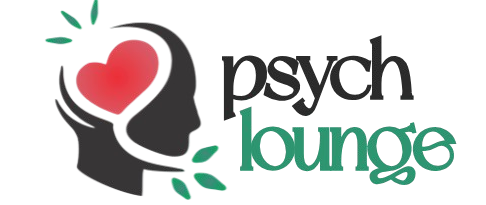CBT
What is CBT?
Cognitive Behavioral Therapy (CBT) is a structured, goal-oriented form of psychotherapy that focuses on identifying and changing negative thought patterns and behaviors. It is based on the principle that our thoughts influence our emotions and actions, meaning that by changing unhelpful thinking patterns, individuals can improve their mental well-being and develop healthier coping mechanisms.
Unlike traditional talk therapy, CBT is solution-focused, emphasizing practical techniques to address present challenges rather than solely analyzing past experiences. CBT can be conducted in individual, group, or online therapy settings and is suitable for people of all ages.
How Does CBT Work?
CBT operates on the belief that psychological distress is not solely caused by external events but by how individuals interpret and respond to them. The therapy process involves:
- Identifying Negative Thought Patterns: Clients learn to recognize distorted or irrational thoughts that contribute to emotional distress.
- Challenging and Restructuring Thoughts: Therapists guide clients in questioning the accuracy of thesethoughts and replacing them with more balanced, realistic ones.
- Behavioral Modification: Individuals engage in practical exercises to change behaviors that reinforce negative thinking.
- Building Coping Strategies: Clients develop skills to manage stress, anxiety, and emotions more effectively.
- Homework Assignments: Patients are often given exercises between sessions to reinforce learning and practice new skills in real-life situations.
CBT is structured and typically short-term, often lasting between 8 to 20 sessions, depending on the individual’s needs and therapy goals.
My Principles
5 Principles of Effective Couples Therapy
Make your relationship work by following these 5 basic principles

Proper diagnosis assists in comprehending the underlying causes of emotional, behavioral or psychological problems

Understanding your mental and emotional well-being is the first step toward meaningful change.

Psych Lounge provides psychology internships and mentorship services to students and new graduates who seek to develop a solid base in clinical practice.

In-depth evaluations to diagnose and understand mental health conditions.

In-depth evaluations to diagnose and understand mental health conditions.


CBT
What Conditions Can CBT Help With?
CBT is one of the most effective treatments for various mental health conditions, including:
-
Anxiety Disorders
- Helps individuals recognize and challenge irrational fears.
- Teaches relaxation techniques and controlled exposure to anxiety triggers.
- Useful for Generalized Anxiety Disorder (GAD), Panic Disorder, Social Anxiety, and Phobias.
-
Depression
- Aims to break the cycle of negative thoughts and inactivity.
- Encourages engagement in positive activities that boost mood.
- Focuses on developing self-compassion and realistic self-evaluation.
-
Post-Traumatic Stress Disorder (PTSD)
- Helps individuals process traumatic experiences in a safe environment.
- Reduces flashbacks and emotional distress associated with past trauma.
- Uses gradual exposure techniques to lessen trauma-related fear responses.
-
Obsessive-Compulsive Disorder (OCD)
- Addresses compulsive behaviors and intrusive thoughts.
- Utilizes Exposure and Response Prevention (ERP) to gradually reduce compulsions.
- Teaches mindfulness techniques to manage distress.
-
Substance Use Disorder & Addiction
- Identifies triggers and thought patterns that lead to substance use.
- Encourages healthier coping mechanisms and relapse prevention strategies.
- Strengthens motivation to remain sober through structured exercises.
-
Eating Disorders
- Helps individuals develop a healthier relationship with food and body image.
- Reduces behaviors associated with binge eating, restrictive eating, and purging.
- Involves self-monitoring and cognitive restructuring techniques.
-
Personality Disorders
- Encourages flexibility in thought patterns and reactions.
- Helps individuals manage emotions and improve relationships.
- Useful for conditions like Borderline Personality Disorder (BPD).
CBT is also effective for sleep disorders, chronic pain management, anger issues, and relationship conflicts.
CBT
Things to Keep in Mind About CBT
While CBT is highly effective, it is important to understand a few key aspects before starting:
-
CBT Requires Active Participation
Unlike passive therapy where the therapist does most of the talking, CBT requires clients to actively engage in exercises, self-reflection, and homework between sessions. The more effort you put in, the better the results.
-
Change Takes Time
CBT is not a quick fix; it requires consistent effort to rewire thought patterns and behaviors. While many people experience improvements within a few sessions, long-term change often takes weeks or months.
-
Some Discomfort is Expected
Since CBT involves facing difficult thoughts and emotions, it can sometimes feel challenging or uncomfortable. However, this discomfort is a normal part of the healing process.
-
It is Not Just About Positive Thinking
CBT is not about forcing yourself to “think positively” all the time. Instead, it teaches realistic and balanced thinking, helping you develop a healthier perspective on life.
-
Relapse Prevention is Key
Even after therapy ends, it’s essential to continue practicing CBT techniques. Coping skills and thought restructuring exercises should become part of your daily life to maintain mental well-being.
-
Finding the Right Therapist Matters
CBT is most effective when you feel comfortable and supported by your therapist. Look for a licensed professional who understands your specific concerns and personal therapy goals.
Benefits of CBT
CBT offers numerous benefits, making it one of the most sought-after therapeutic approaches:
- Evidence-Based and Highly Effective – Backed by extensive research for treating mental health conditions.
- Provides Practical Coping Skills – Equips individuals with lifelong tools to manage stress and emotions.
- Structured and Goal-Oriented – Focuses on solutions rather than dwelling on past experiences.
- Short-Term and Cost-Effective – Many people see improvements within a few months.
- Reduces Risk of Relapse – Helps prevent recurrence of mental health conditions.
- Improves Relationships – Enhances communication and emotional regulation in interpersonal relationships.
Have a question?
Drop a Line
Contact me now
Book Your CBT Session Today!
Take the first step towards a healthier, more balanced life. Contact PsychLounge to schedule a personalized CBT session with our expert therapists.
